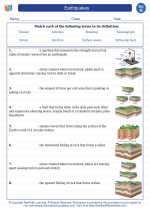Charles's Law
Charles's Law states that the volume of a given mass of gas is directly proportional to its absolute temperature, provided the pressure remains constant. In simpler terms, as the temperature of a gas increases, so does its volume, and vice versa.
Formula
The mathematical expression of Charles's Law is:
V1 / T1 = V2 / T2
Where V1 and T1 are the initial volume and temperature, and V2 and T2 are the final volume and temperature.
Example
For example, if a balloon is filled with a certain amount of gas at 20 degrees Celsius and then heated to 50 degrees Celsius while the pressure remains constant, the volume of the gas will increase according to Charles's Law.
Study Guide
- Understand the Relationship: Make sure to grasp the concept that as temperature increases, so does the volume of a gas, and as temperature decreases, so does the volume.
- Use the Formula: Practice using the formula V1 / T1 = V2 / T2 to solve problems involving Charles's Law. Pay attention to the units of temperature (Kelvin) and volume (cubic meters or liters).
- Real-life Applications: Try to find real-life examples of Charles's Law in action, such as the behavior of a gas inside a car tire on a hot day versus a cold day.
- Graphical Representation: Understand how Charles's Law can be represented on a graph, with volume on the y-axis and temperature on the x-axis, showing a direct proportional relationship.
- Compare with Other Gas Laws: Differentiate Charles's Law from other gas laws, such as Boyle's Law and Gay-Lussac's Law, noting the specific conditions and variables each law deals with.
Understanding Charles's Law can provide insights into the behavior of gases and their response to changes in temperature. It is an important concept in the study of thermodynamics and the behavior of gases.
.◂Science Worksheets and Study Guides Eighth Grade. Earthquakes
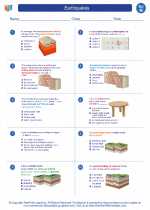
 Worksheet/Answer key
Worksheet/Answer key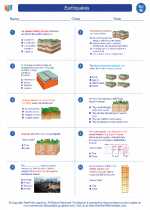
 Worksheet/Answer key
Worksheet/Answer key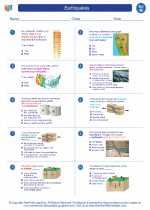
 Vocabulary/Answer key
Vocabulary/Answer key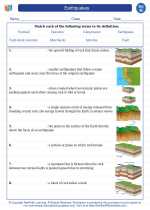
 Vocabulary/Answer key
Vocabulary/Answer key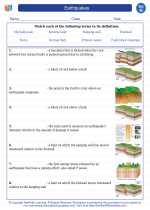
 Vocabulary/Answer key
Vocabulary/Answer key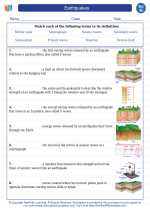
 Vocabulary/Answer key
Vocabulary/Answer key